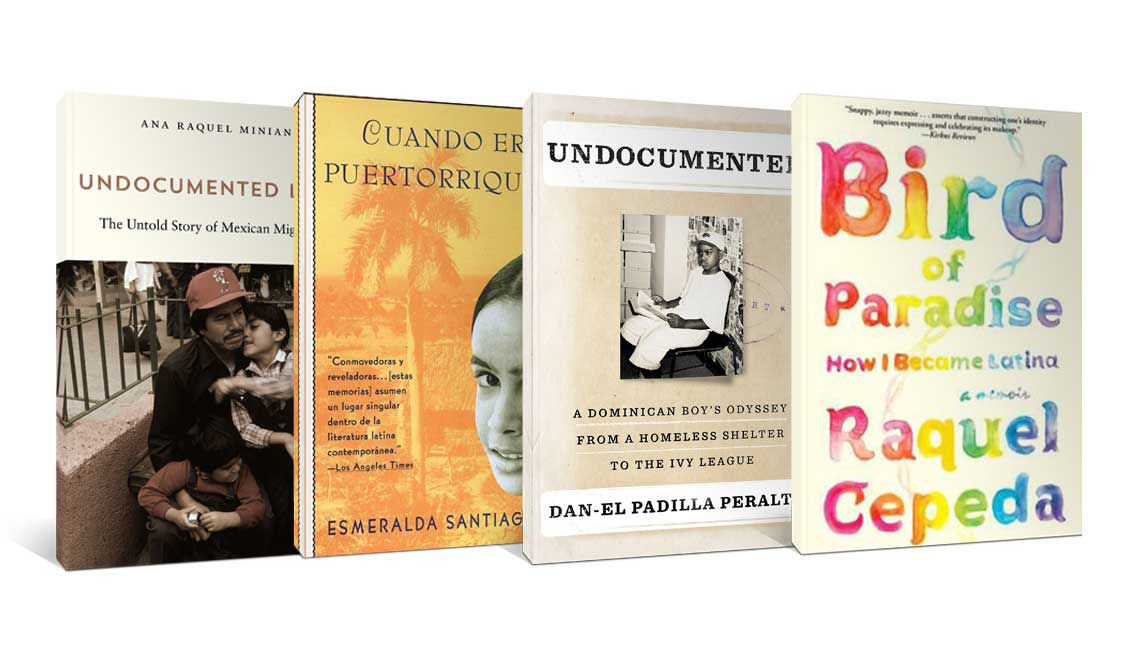
4 inspiring books about immigration
AL DÍA News has selected four books that will provide the leader a closer look into the experience of migration in the United States.
America is a country of immigrants, although many forget it.
The stories of all those people who decide to leave their countries in order to fulfill their dreams in the United States—or simply in hopes of escaping from violence and poverty—overcoming challenges and achieving success along the way, deserve to be remembered. Without these immigrants, the United States as it is today would not exist. No matter how hard President Donald Trump tries to discredit the value of immigrants, especially those from Latin America, it cannot be denied that many of the country's greatest assets rely on the nation's cultural and racial diversity. The U.S. presents a window of opportunities that allow any person - poor or rich, black or white, university graduate or illiterate - to reconstruct his life and live in an environment where freedom and tolerance are respected (although there is still much to improve).
As June is Immigrant Heritage Month, it is worthwhile to remember books that tell some of these immigrant stories—and make sure we do not forget them.
We could begin with "A Nation of Immigrants," the book written by President John F. Kennedy. One of Kennedy's obsessions was the issue of immigration reform. He believed that the United States was a nation of people who valued both tradition and the exploration of new frontiers, of people who deserve the freedom to build a better life in their adopted land.
From the challenge of being an undocumented person to the challenge of learning a new language or overcoming an identity crisis, AL DÍA News has selected four books that will bring you closer to the experience of migration in the United States—novels and autobiographical stories that remind us that immigrants are human beings, many of whom had to overcome daunting obstacles to find employment, improve the communities where they live and, hopefully, achieve American citizenship.
Born in Mexico City, Ana Raquel Minian was always interested in the history of her country and her relations with the United States. So when she finished her studies, she decided to cross the border to pursue a Ph.D. at Yale. After a decade of research, Minian - now a professor at Stanford - has recently published “Undocumented Lives: The Untold Story of Mexican Migration,” a review of Mexican immigration from 1964 (when the White House ended the Bracero Program) to the present, with an emphasis on the problems of identity as well as the economic and social challenges of all those people who do not feel that they are from here nor from there. One of the chapters is entitled "The Golden Cage," like the song of the northern band Los Tigres del Norte, "which speaks of an immigrant in the United States who dreams of returning to Mexico but feels trapped, as in a cage of gold, which prevents him from leaving the country."
An author of reference for anyone who wants to approach the culture of Puerto Rico from the perspective of immigration is Esmeralda Santiago (San Juan, 1948), a Puerto Rican writer who emigrated to New York in the 1960s. Santiago, who has managed to become a reference in Latino contemporary literature, is the author of the bestseller "When I was a Puerto Rican," inspired by her personal immigration experience.
RELATED CONTENT
In the book, Esmeralda (nicknamed "Negi"), tells the story of her childhood in the poor but beautiful rural environment of Puerto Rico—until her mother decides to escape to Brooklyn. According to critics, the whole work of Santiago conveys the idea of the Latin immigrant trapped between two worlds: the world he lives outside his house, trying to adapt to mainland U.S. society and meet professional expectations, and the world he finds inside his house, which one trapped in traditions and too dependent on his parent's expectations.
When Dan-el Padilla Peralta was four years old, he and his mother landed in New York from Santo Domingo with a tourist visa and did not return to the Dominican Republic for a long time. Obviously, their visas expired so Padilla had to live under the fear of being deported.
Raised in a poor neighborhood in Manhattan, the young Dominican, who is now 31 years old, took refuge in the libraries of New York to read classical texts in Greek and Latin, despite the fact that he could not understand a word. That is how his passion for studying Philosophy arose: a passion that led him first to Princeton and Oxford, and later to Stanford, where he obtained his Ph.D. in Classics.
Padilla tells his story in "Undocumented: A Dominican Boy's Odyssey From a Homeless Shelter to the Ivy League," an autobiography of his life, published in 2015.
Born in Harlem to Dominican parents, Raquel Cepeda has made a career as a journalist, cultural activist and documentary producer. Four years ago she published "Bird of Paradise: How I Became Latina," a novel inspired by memories of her childhood adolescence between Santo Domingo and the New York of the 1980s, where she discovered the world of hip-hop and began to connect with her Afro-Latin roots. The protagonist of the book is a detective who embarks on the search of her heritage using DNA tests, and her adventures bear some similarities to those of Oscar Wao, the Dominican teenager that gives the name to the famous novel by Junot Díaz, another prominent Latino author. Both Cepeda and Díaz write stories of self-discovery through the racial, ethnic and linguistic conflicts that are at the heart of the American Latino identity.










LEAVE A COMMENT: